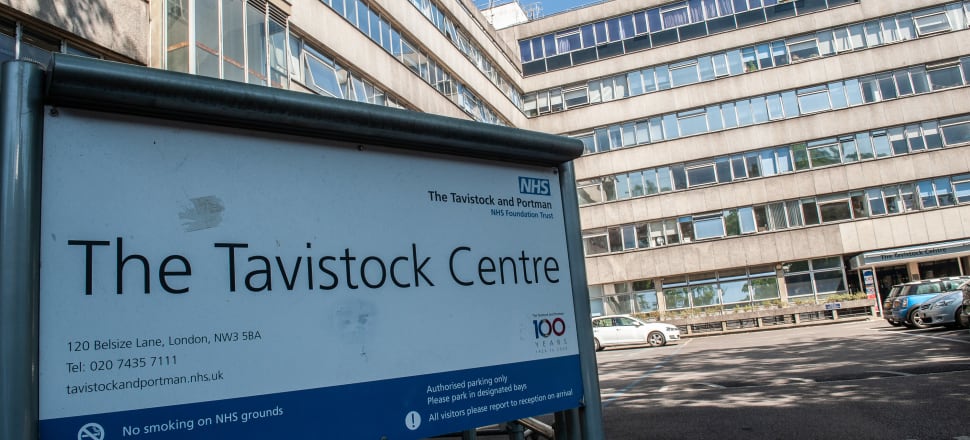
The case of the UK’s Tavistock Gender Identity Development Service (GIDS) has led some to question how much information is available to Aotearoa families on the Ministry of Health’s services.
Opinion: If you read recent British media coverage concerning the proposed closure of the London Tavistock GIDS, you might assume that trans and gender healthcare itself was criticised heavily in Dr Hilary Cass’ recent interim report. Instead, Dr Cass found that having one over-subscribed service for the entire UK was insufficient for providing proper care. The report proposes opening regional centres with better provision to ensure better outcomes for patients. Parents of young people using the service welcomed the closure of the Tavistock and the expansion of services to replace it. As the UK’s only GIDS they had no other choice but to use the service, while being acutely aware of its faults, but wanting to support their children.
Coverage that “up to 1000” families would be taking legal action against Tavistock GIDS as a result of the Cass report could also spark concerns. However Tavistock GIDS had 19,000 referrals in the past decade, and of those just over 1,000 were referred on to paediatric endocrine clinics for hormone suppressants (known as puberty blockers). The article itself is mostly the legal firm Pogust Goodhead appealing for patients and former patients to contact them, with subsequent coverage quoting experts doubting the likelihood of the quoted numbers joining the action.
A recent longitudinal study of young people who transitioned in the American Academy of Pediatrics found 94 percent remained their transitioned identity after five years of social transition. The Interim Cass Report statistics that 96.5 percent and 98 percent of young people on puberty blockers subsequently begin hormone treatment to transition, isn’t cause for concern. This demonstrates the overwhelming majority of those using puberty blockers were prescribed them appropriately. When paired with the 94 percent of those who remain in their trans identity after five years, it is evidence of a clear and effective pathway to support gender questioning people into their identities, to be themselves.
The differences between the NHS and NZ's Ministry of Health statements about puberty blockers, referenced in a recent comment piece, by Dr Sarah Donovan, does not mean they are not both accurate. Puberty blockers are reversible as the MOH says, and they're also a field about which study is ongoing. However, there are a lot of myths about the effects of puberty blockers, which have been debunked with further research.
The NHS says “…it is not known what the psychological effects may be”. Many studies so far report that puberty blockers ensure favourable mental health outcomes for patients, a reduction in depression and attempted suicide, and the vast majority remain their transitioned identities - despite the insistence of some that detransitioning makes up more than the reported <10 percent.
The NHS also says “it's also not known whether hormone blockers affect the development of… children's bones”. The Interim Cass Report references this 2017 study into the use of puberty blockers as supporting evidence that the NHS should “be consistent with international best practice”. It should be welcomed that the same study is referenced in the MOH’s Hauora Tāhine: Pathways To Gender Affirming Healthcare’s guidelines in Aotearoa, which says:
"There is some concern regarding the long term impact of puberty suppression on bone mineral density. It is advisable to encourage young people on puberty blockers to have an adequate calcium intake, provide vitamin D supplementation where needed and encourage weight bearing exercise. For those requiring a prolonged period on puberty blockers or who have other significant additional factors for reduced bone density, a Dexa scan to monitor bone densitometry should be considered."
Following up on this, the consent forms required for someone to be prescribed puberty blockers (which are based on the Haoura Tāhine guidelines) explicitly state;
“Puberty is a time of increased calcium uptake and growth of bones. Blockers may interfere with this. For this reason it is important to look after your bones while on the blockers by keeping active and having enough calcium and vitamin D. It is not known if being on blockers increases the risk for osteoporosis (thinning of bones) in older age.”
These forms, and all of this information, is publicly available to view here. It includes information on family support, and demonstrates that young people being welcomed to the service are directed to the Hauora Tāhine guidelines in the first letter they would receive.
The MOH’s site ‘Health Care for transgender New Zealanders” explains both the health care available, but also emphasises that “The process of starting hormonal therapy includes assessing readiness, from a medical and psychosocial perspective, to begin. More visits may be required for people with complex physical or mental health issues. Information needs to be provided to support an informed consent approach.”
This both pre-dates the findings of the Interim Cass Report, and its desire for creating best practice with regards to providing this care in the UK, and shows a full commitment to the evidenced international best practice models the Interim Cass Report recommends.
This potentially answers Dr Donovan's question, “How does the New Zealand model of child and teen gender services compare with the NHS model now being urgently overhauled?” In short, information is readily available, informed consent is core to the approach, and there are clear references to the studied effects of puberty blockers and the effects of all hormone treatments throughout the services materials.
I would enthusiastically recommend to anyone who has read recent British media coverage of the Cass Report and the London Tavistock GIDS, and has concerns about Aotearoa’s own services, to read the excellent work of both the MOH and the Professional Association of Transgender Health Aotearoa (PATHA).







